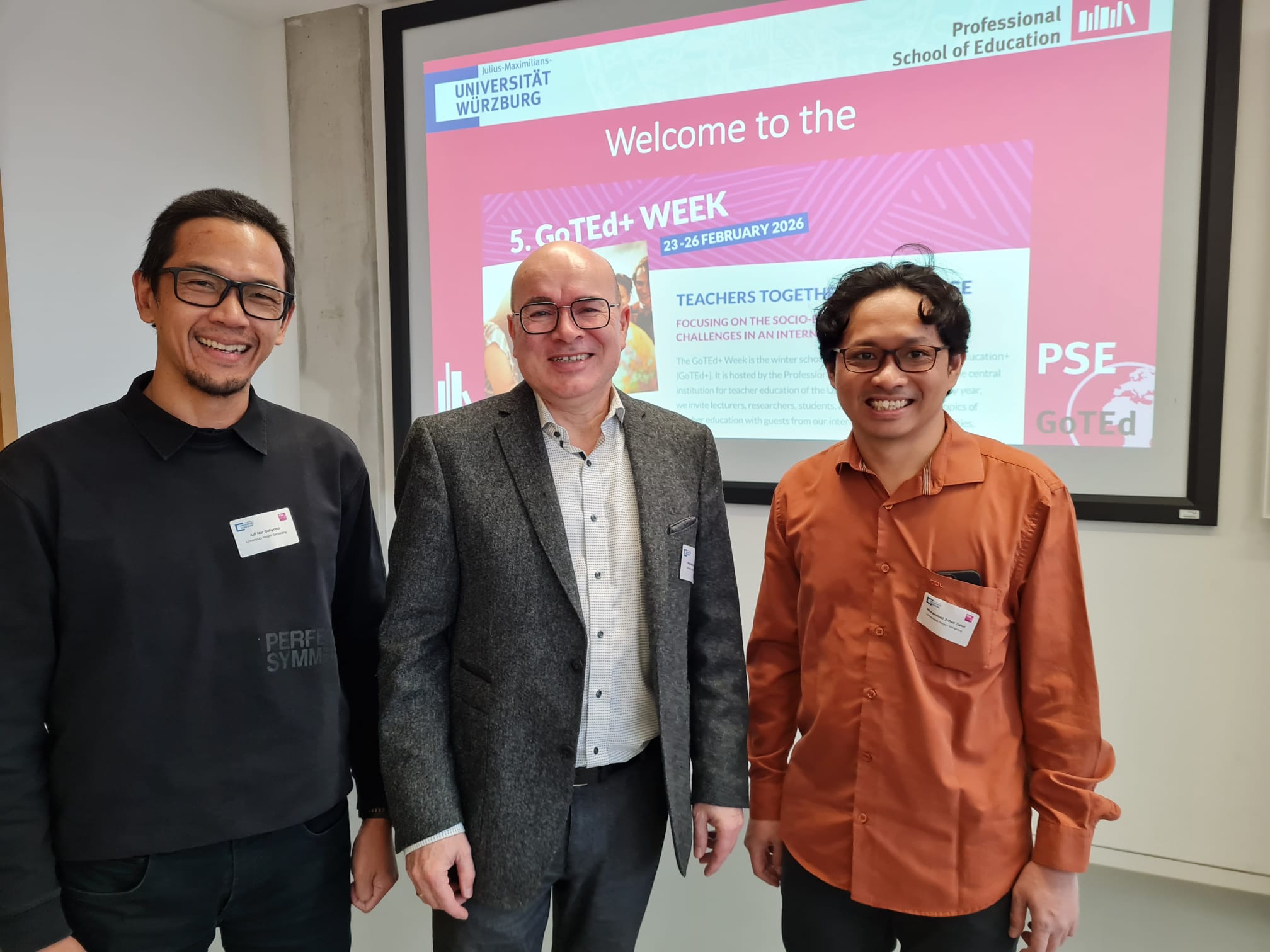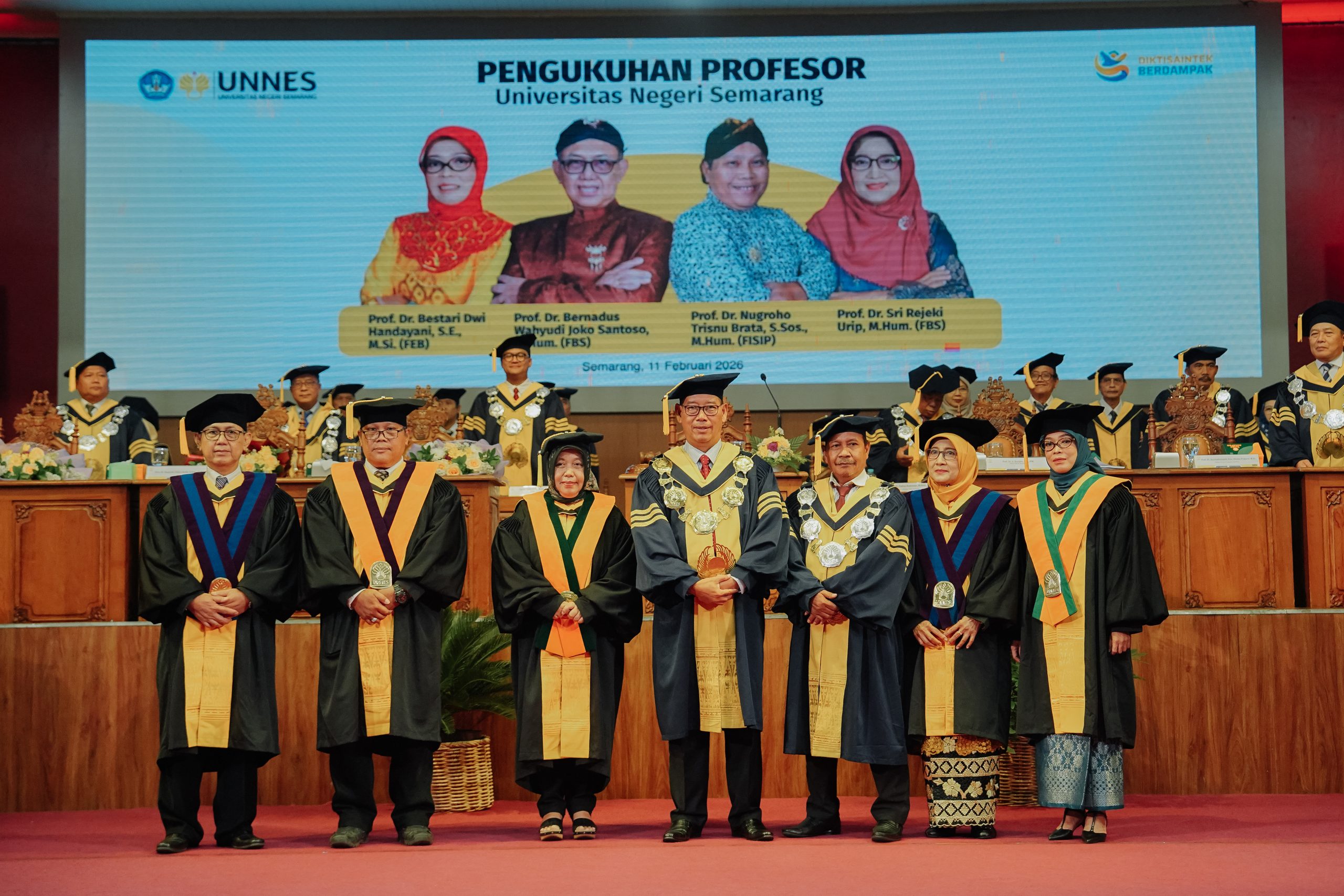
Language within ourselves can be manifested as eyes in seeing the worlds. The intelligence in language, communication, and as well as the ability in understanding foreign culture. Those are main assets in competing globalization era.
In 2019, The Japan Foundation will hold a program in Kansai University, Osaka. This program named “Japanese Language Education Capacity Building South East Asia Japanese Teacher Training Collage”. This program is participated by educator in South East Asia. Dwi Puji Asrini as the Japanese Lecturer of Faculty Language and Art UNNES and Isnanda Elok Hapsari as Japanese Education Student were chosen as the participants in this program.
The purpose of this program is to improve the capacity and confident in using Japanese on various real cultural situation. Besides, this program in particular is to actively discuss the Japanese teaching methods in order to give learning experiences which close to real cultural situation in globalization era.
The class will be held for 45 days (January 10th – February 23rd). There are several classes to follow, such as Sociocultural Understanding, Cultural and Social Development’s Discussion, Speeches, Interviews involving student and resident, Culture Class (Indonesian and Japanese Culture Introduction), and Variation Class Discussing E-learning in Teaching Japanese.
In teaching method class, the participants will be equipped with Japanese teaching method using JF standard basis (Japanese Proficiency made by The Japanese Foundation) that was broken down into “My Can Do”. That is adjusted to alumni accomplishments and each course accomplishments.
Teaching method class also accommodating the learning material’s construction using real materials-collected while in Japan. By using this material, teachers are able to give learning experience to students. It includes having a direct experience (listening, reading, and seeing) materials. The materials they have got such as posters, interview results with Japanese people, etc. Those learning materials are expected to enhance learning motivation as well as improve the capacity of Japanese student graduation. Besides, inserting the cross-cultural understanding, Japan uniqueness, and the advancement of Japan technology in teaching material becoming essential. This part is crucial to prepare potential professionals which equipped with capacity that fits in global changes.
In E-learning class, they are introduced with various media, technology, and website for Japanese teaching purposes. The usage of technology in teaching Japanese is to support the process like addition, complement, and replacement. Furthermore, E-learning can be used as source of learning, teaching media. Yet, this class can also be used as online class to breach barrier of space and time limits.
Mr. Kanai Atsushi as the manager of the program conveyed that capacity building program will be hold in winter. The reason of choosing winter becoming relatively special consideration for Japanese people. In winter, Sakura flower is surviving from cold to produce beautiful petals, then welcome the next spring. This philosophy is the background of Capacity Building program.
“As kenshusei (the participants in Japanese) manifested as an egg. In order to hatch becoming a strong, mighty bird. It is needed to be placed in winter. If the egg can get through winter, then the mighty bird is born with its persistence, patient, and strength”, he added.
Agung Setyo Nugroho (Student Staff)
19
Feb



